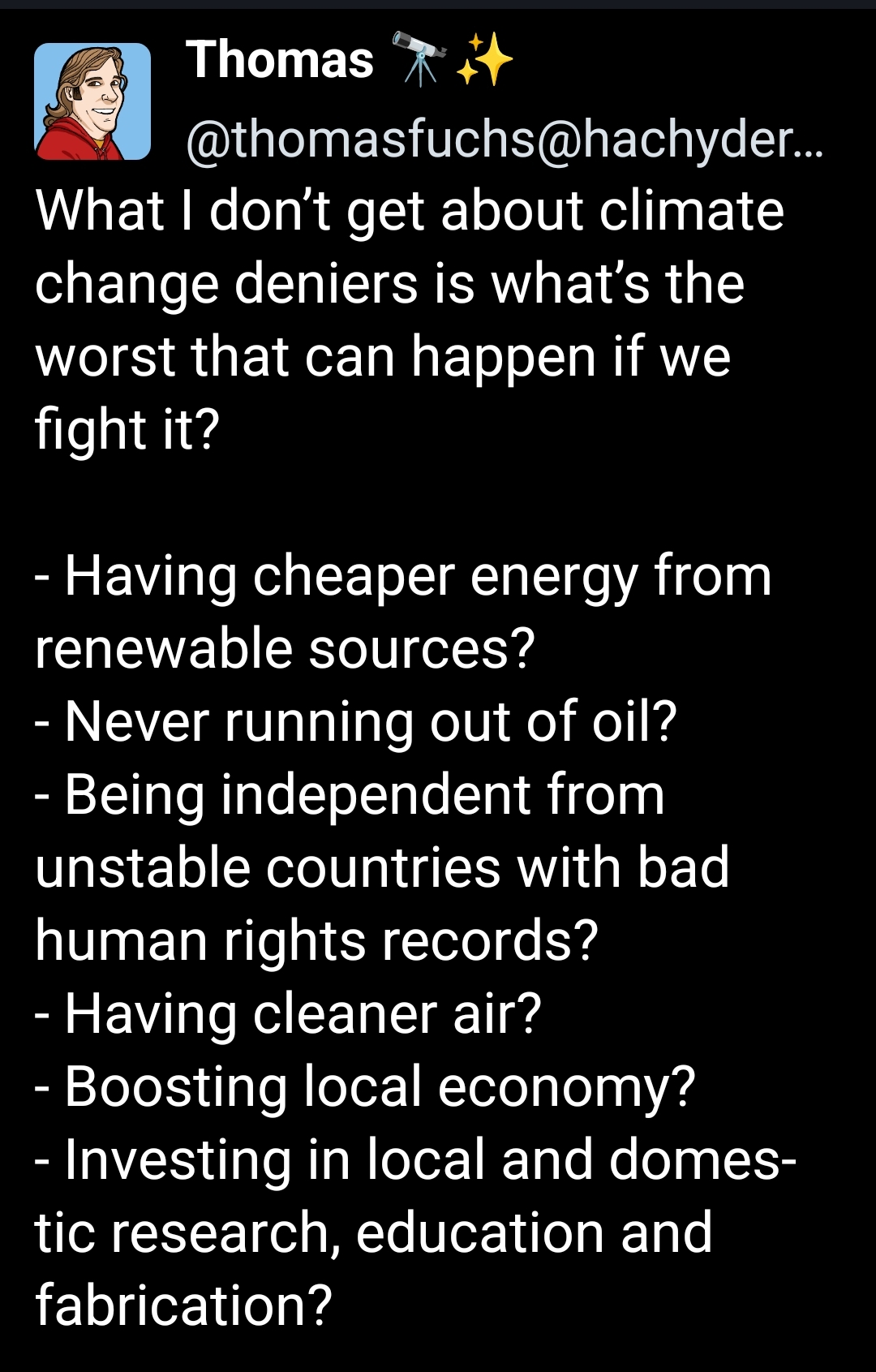this post was submitted on 18 Aug 2024
1527 points (98.5% liked)
People Twitter
6179 readers
1060 users here now
People tweeting stuff. We allow tweets from anyone.
RULES:
- Mark NSFW content.
- No doxxing people.
- Must be a pic of the tweet or similar. No direct links to the tweet.
- No bullying or international politcs
- Be excellent to each other.
- Provide an archived link to the tweet (or similar) being shown if it's a major figure or a politician.
founded 2 years ago
MODERATORS
you are viewing a single comment's thread
view the rest of the comments
view the rest of the comments

The quality of the education matters. I'd argue that Jesuit priests, despite being educated in highly religious schools, tend to be the more liberal branch of Catholicism due to their emphasis on logic and analysis.
What I'm saying is that a good education is one that emphasizes critical thinking; that indoctrination is not education; and that people with strong critical thinking skills tend to be liberal. I believe that it's because the antithesis of dogma is critical thinking. Sure, it's not a guarantee, and the fact that Einstein was staunchly religious, and that Jesuits exist prove that you can have good logic and critical thinking skills and still be prone to religiosity. However, history shows that educated populations tend to be more progressive and less prone to falling for rhetoric and ideology.
Your point is important, though, and I'll emphasize my comment that it's important to distinguish between indoctrination and education. PragerU tried to call itself a university, but that doesn't make it one; and education curriculum directed by governments tend to include a fair amount of indoctrination.
There's a scene in The West Wing where Sam Seaborn (Rob Lowe) is talking to, I think, Ainsley Hayes (Emily Procter). As I remember it, there was a paper arguing a conservative viewpoint on something, and Sam reveals that he wrote the paper as part of a debate exercise. I always thought that was the epitome of a good education: being able to switch your viewpoint and really understand the other side's argument to the point where you can win a debate arguing for something you oppose. It reflects that you deeply understand both sides, not just your own dogma or opinions; it reflects that your position is probably based on the fact that you've considered both sides and chose your position thoughtfully. A good education will force people to debate a viewpoint they disagree with; a bad one will only have them debate the position they already hold. I wish I could find that clip on YouTube; I may have to rewatch the entire series (at least up until Sorkin left) just to find it again.
I'd say it has more to do with their proletariat recruitment and lifestyle, but sure. Logic and analysis definitely have their role.
Critical thinking is an engine, but you need the initial conditions to fuel it. Thomas Aquinas and Isaac Newton were both profound critical thinkers, but they came to remarkably different realizations over their lifetimes. We have critical thinkers who can't agree on shit all the time, and not just in the gulf between religion and science. Go into the realm of particle physics and you'll have people sharply divided on the fundamental nature of the universe despite enjoying ample expertise in their areas of study.
Go into public policy and you'll find the same divides. Critical thinking still needs a moral basis. Otherwise, you're just a paperclip maximizing engine, logically and emotionlessly determining the most efficient way to turn the whole world into consumer widgets.
Part of the joke of West Wing is that Rob Lowe is playing a conservative in a liberal administration. They all kinda are. That's Aaron Sorkin's brand of politics. Do conservatism from the left. So of course you've got Seaborn writing a paper from a conservative perspective and demonstrating a competency in conservative thinking and then having a conversation with another conservative about what Real Conservatism Really Means. These are two conservatives talking to each other about a shared ideological framework.
Go back and look at what the ostensibly liberal President of an ostensibly liberal party actually accomplishes while in office and you're going to find - Budget Cuts, Foreign Wars, and Privatization of Education and Social Security. Basically the Bush Administration's agenda for the second term in office.
Show me the Aaron Sorkin character who credibly and sincerely makes an argument in favor of the Cuban Revolution. The closest they come is "Ninety Miles Away" and its not exactly flattering to Castro.